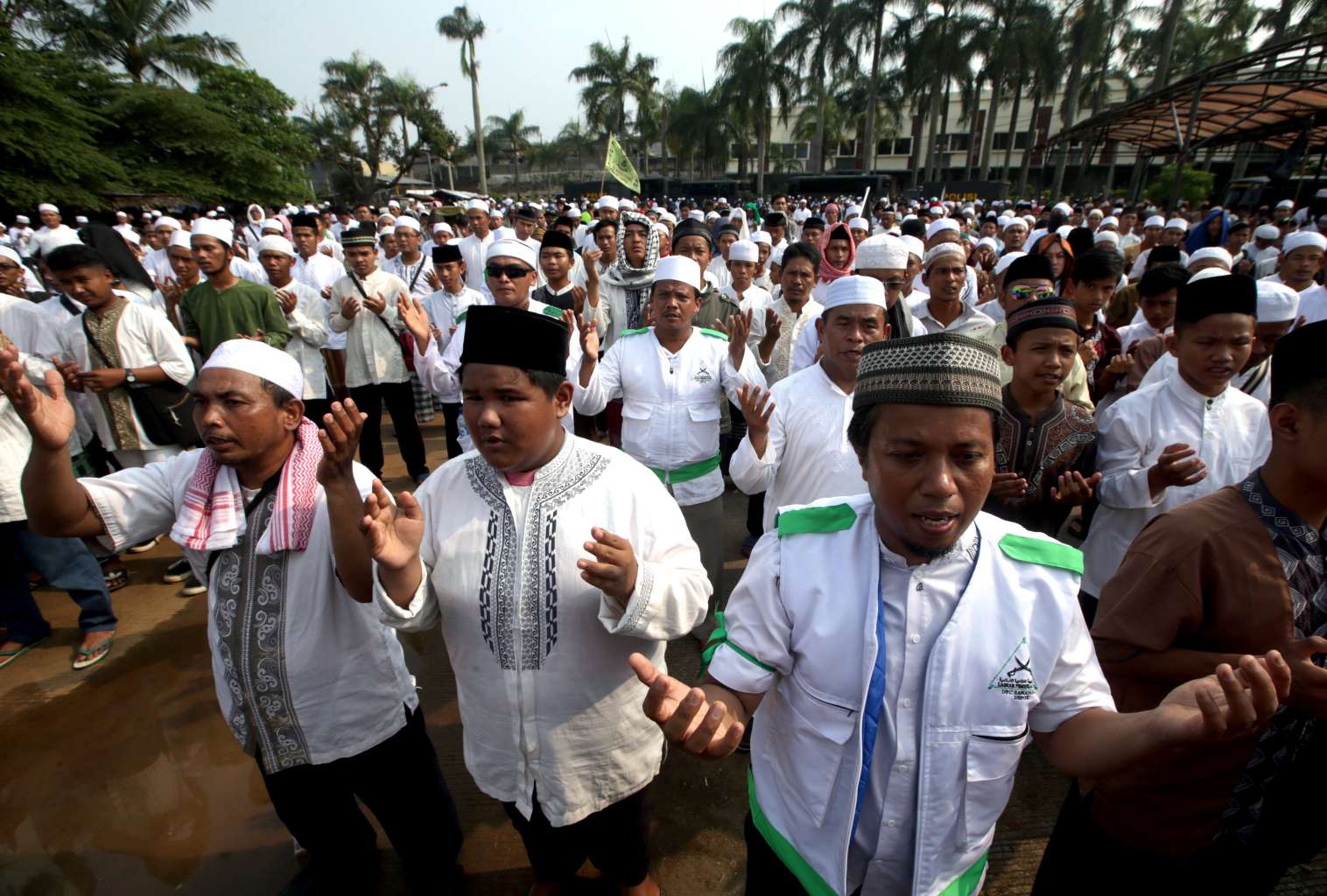Alert about revival of communism? Yes, Paranoid? No: The Jakarta Post
In its editorial on Feb 27, the paper argues that, while the danger of radical thought should not be underestimated, any measures taken to combat the threat should not go against democratic principles.
Sign up now: Get insights on Asia's fast-moving developments

Indonesian Muslim members of the hardline group Islamic Defenders Front (FPI), pray near an Ahmadiyah mosque in Sawangan, Indonesia.
PHOTO: EPA
Follow topic:
JAKARTA (THE JAKARTA POST/ASIA NEWS NETWORK) - It is largely agreed that the history of a nation helps shape the character and attitude of its citizens. From all the accounts that influence people's minds, horrible events of the past apparently play the most pivotal part.
For Indonesia, the alleged coup attempt on Sept 30, 1965, blamed on the now defunct Indonesian Communist Party (PKI), is a past horror that has affected people's minds.
Many consider the incident a thorn in the flesh, which is why communism is listed among the subjects to be discussed in the amendment to the Criminal Code (Kitab Undang-undang Hukum Pidana or KUHP), which is now underway.
During the deliberation of the draft revision to the KUHP, both the House of Representatives and the government share the opinion that Marxism-Leninism is a serious threat to the nation's unity and integrity.
The decision to address communism in the bill is said to anticipate a revival of communism in the wake of China's growing presence as an economic force and due to a borderless world that gives Indonesians access to "foreign" ideologies.
This happens despite the fact that China is leading a global campaign for free markets, the antithesis to communism.
Not only have our policymakers ignored this phenomenon, they have also turned a blind eye to other thoughts that could potentially split the nation, such as radical Islamic ideology that wants to form a caliphate in Indonesia.
So serious is the perceived danger that opposition to state ideology constitutes a crime that can be charged under three articles, namely Articles 219 and 220 on the propagation of communism and Marxism-Leninism and Article 221 on attempts to replace Pancasila, the official philosophical principles of the state.
Legislators have argued that these anticommunist provisions are needed to prevent the reoccurrence of another 1965 tragedy, which claimed hundreds of thousands of lives and led to the stigmatisation of former PKI members, supporters and their families.
The communist phobia is indeed alive in Indonesian politics. One famous example of this paranoia was the massive campaign linking Joko "Jokowi" Widodo to communism when he ran for president in 2014.
Civil groups have ridiculed the idea that communism is the number one ideological threat. However, state institutions, the military and also some Islamic organisations remain steadfast in pushing their phobic narratives.
As part of precautions, the danger of communism and extreme thought must indeed be taken seriously. However, the extra attention against them must not justify oppression and abuse of power, such as happened in the past.
While we agree that democracy is this country's philosophical foundation, measures taken to prevent and counter radical thought must not go against democratic principles. Any legal action taken against the supporters and perpetrators of radicalism should follow the rule of law, or else the democratisation that we have all witnessed will move backwards.
The Jakarta Post is a member of The Straits Times media partner Asia News Network, an alliance of 22 news media entities.

